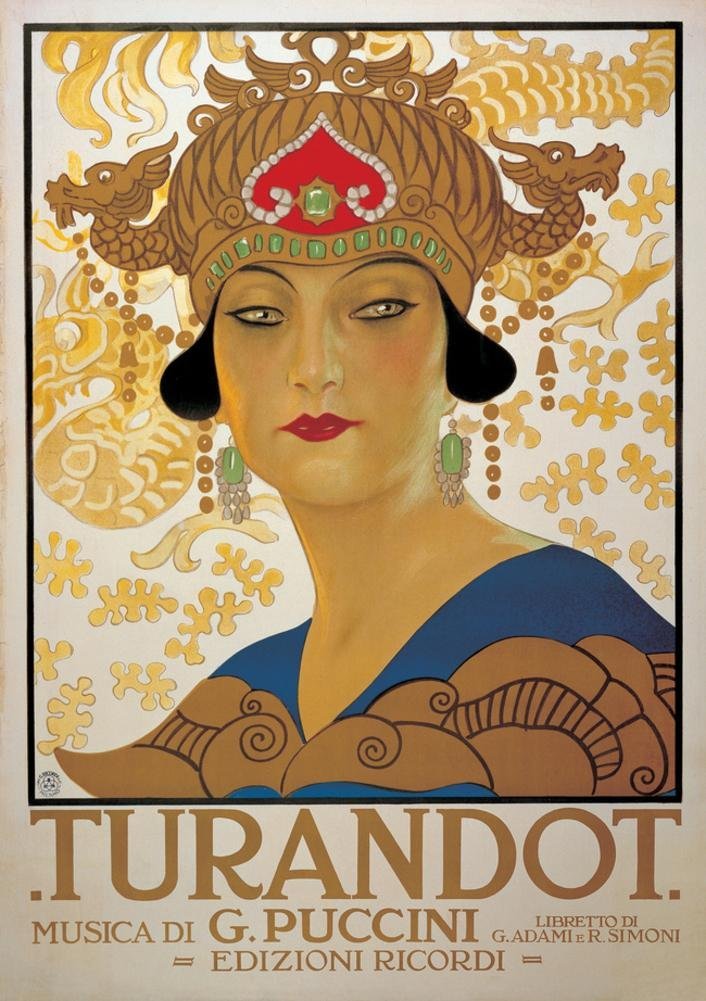Turandot was a very striking play for many people especially me. I immediately felt the tension and violence that would unfold after reading that Princess Turandot wanted her male suitors to answer her three riddles correctly. Her disappointment at Prince Calaf’s correctness, I thought was very selfish. She took that opportunity as a way to kill someone innocent.

Calaf’s courage and determination to chase after someone so cruel was indeed very shocking. Most of all, he ignored the slave girl, Liu’s hints of appreciation for to not risk his life. Because of Liu’s bravery, she not only helped change Turandot’s overall demeanor at the end of the play, but became a central martyr figure.
Liu died to protect someone’ else’s love and well-being, which she could not gain herself, which was very gripping and sorrowful. It also brings to attention to the audience what true love means, rather than a false appearance of beauty. Turandot’s selfishness really generated contempt from the audience, which shifted dramatically at the end when she reveals that Calaf’s name is “Love.”
I feel that in the end, Princess Turandot finally came to her senses to be a respectable human being. But it costed the sleeplessness, and death of essential people. Overall, this play was very intriguing, and kept the pace of the tension moving forward until the very end.

I too found Princess Turandot’s actions to be extremely sociopathic; she killed people left and right all because they wanted to ask her hand in marriage. But when Liu was killed, it was a completely different story; Calaf completely ignored the fact the Liu saved his life, and proceeded to marry Princess Turandot anyway. How selfish could he possibly be? It reflects who he is as a person and that his selfish desires outweigh his gratefulness to the people around him.